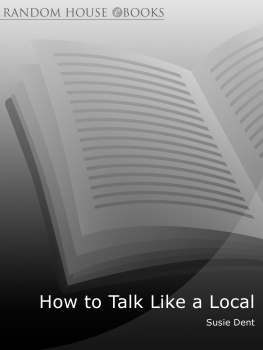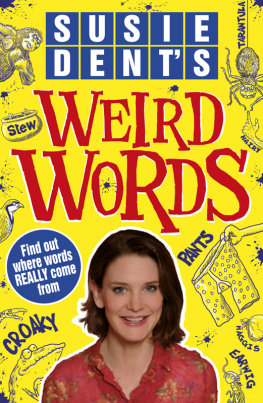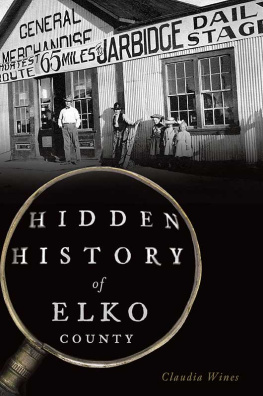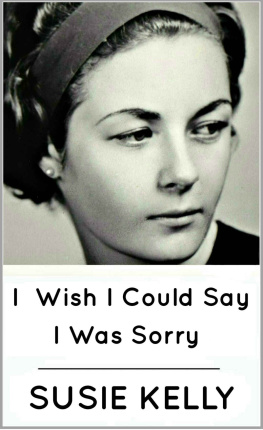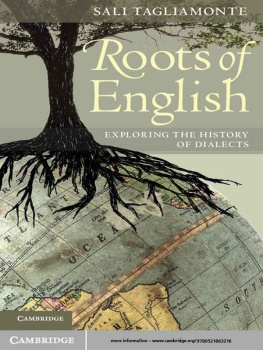Contents
About the Book
If you were a Londoner visiting Cornwall would you know how to recognise a grammersow?
If you were from the West Country and took a trip up to Scotland, would you be bewildered if someone described you as crabbit?
And what if you left your native Belfast for Liverpool, would you understand if someone called you a woollyback?
How to Talk Like a Local is an entertaining guide that gathers together and explains hundreds of words that you would never find in an ordinary dictionary. From dardledumdue, which means day-dreamer in East Anglia, through forkin robbins, the Yorkshire term for earwigs, to clemt, a Lancashire word that means hungry, it covers the enormously rich variety of regional words that pepper the English language.
Not only does it pick out unique and unusal local words, it also draws together the dozens of terms from all over the country that mean the same thing, such as knee-knabbed, crab-ankled and hurked-up for knock-kneed, and obzocky, butters and maftin for ugly. In addition, it digs down to uncover the origins of these words, tracing their routes in to the language. Many terms meaning left-handed, for example, are related to the Kerr family of Ferniehirst Castle in Scotland, who preferred left-handed warriors. And many seemingly new coinages have been around for centuries, such as chav, which derives from a Romany word meaning child, or scouse, which probably comes from lapskaus, a Norwegian word for a sailors stew.
If youre intrigued by these colourful words and phrases, if youre interested in how English is really spoken, or if you want to discover how our language has evolved over the years, How to Talk Like a Local will prove irresistible and enlightening reading.
About the Author
Susie Dent is an independent editor and translator who appears regularly in Countdowns dictionary corner. She is the author of six editions of The Language Report, an annual guide to the new words and phrases that find their way into the English language.
Introduction
When I first told friends that I was embarking on a project collecting British dialect, their first thought was often that I would meet a lot of lonely people. I confess I feared they might be right. The speakers whose gems I was looking for were sure to be the last ones standing, bearers of vanishing vocabularies that would never be replaced. For the word dialect has become synonymous with decline, just as English, we are told, is destined to become monolithic, bland, and peppered with universal lines absorbed from TV and Internet chat rooms.
It has been one of the nicest surprises of my career to learn just how wrong we were. That English is far from losing its edge I already knew its golden age may even lie ahead of us still but I accepted without question that it was different for dialect. Like most people I know, I believed that our local vocabularies are being ironed out at the same electric pace as new words are being coined, and for a much bigger audience than a particular neighbourhood. That what we now have is a general lexicon from which everyone, north and south, young and old, draws for expression. What Ive discovered in the course of writing this book is that dialect is alive, well, and kicking hard. Its just doing so in new and different ways.
Of course, thousands of beautiful and unmistakably local words are dying out; many have already done so. They are just as surely to be missed as the new are to be celebrated. For the most part they belonged to a world now lost to us one populated with horse-drawn ploughs, dockers and cotton workers, collieries and tin-mines. The lexicons of these and other industries are still there if you look hard enough, but as the need for them diminishes, so do the aural snapshots of the life they once so brilliantly described. Yet, over the 1,500 years of Englishs history, it was ever thus words have come and gone (and often come back again) throughout, but the footprints they leave remain as telling as ever.
That new dialect is being coined today was an exhilarating find of all the surprises that the writing of this book gave me, that was the big one. But there were lots of other discoveries along the way. As a collector of new words on the margins of Standard English, Ive long realised that slang prefers particular subjects: sex, money, drink and drugs being at the top of the list. And so it is, Ive discovered, with dialect. Local vocabulary collects around certain themes in just the same way. Some of these themes are as you might expect: given the nature of dialect which is often as personal as it is local it is hardly surprising that members of a family attract a whole range of different epithets. The staples in life, too, are natural targets for home-grown expression: bread, hunger, putting on a brew, packed lunches all are core parts of our daily routine. And, just like slang, the lexicon for drunkenness is vast.
If the themes around which our local words congregate are fewer than you might expect, they make up for it with the dazzling variety within them. The dialect waterfront may be narrow it is a world that deals in the easily accessible and concrete rather than the abstract but it is infinitely deep. And it tells us an awful lot about Britain, its past, present and its locals (all of us).
Take a stereotype about the British: that we are a pessimistic bunch. If the number of local words for ugly is anything to go by and it far surpasses the number for pretty then on this occasion the clich may have nailed it. And so it probably follows that the widest dialectal variation for things connected to our health and our body dwell on the more unsavoury aspects: blisters, for example, or armpits, or the faintly animalistic act of panting. It may seem cruel too that English dialect has quite so many words for physical handicaps or misfortunes. Whether knock-kneed, pigeon-toed or splay-footed, you would be hard-pressed to find a place in Britain that didnt have a local name for it.
Food, too, is usually mentioned in the standard portrait of the British, and rarely without a raised eyebrow. In dialect, however, food has a special place . And rightly so. For all the mockery over the British palate, the variety of foods wrapped up in its history is reflected in a wealth of local words. For bread alone there are estimated to be hundreds of terms which all hold a special resonance (not to say flavour) up and down the land. Being hungry is a labourers lot, and the lexicons for being famished for your snack or packed lunch are particularly full. In the same vein, if there is anything which defines Britain in the worlds eyes more than English beer, it is probably tea-drinking. The nations two potable obsessions come together in the idea of brewing tea: an act which is called dozens of things depending on where in Britain you want to put the kettle on.
The British may be a nation of shopkeepers, as the saying goes, but it seems we are also a lot of gossips. And the act of exchanging titbits of information about each other is another theme that, when it comes to dialect, knows few limits. It persists across the nation in a glorious collection of names. Among its local variants are jangle (Liverpool and North Wales), jaffock (Lancashire) and pross
Next page
